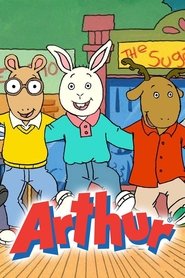Crash Course Statistics - Season 1 Episode 41 Neural Networks
Today we're going to talk big picture about what Neural Networks are and how they work. Neural Networks, which are computer models that act like neurons in the human brain, are really popular right now - they're being used in everything from self-driving cars and Snapchat filters to even creating original art! As data gets bigger and bigger neural networks will likely play an increasingly important role in helping us make sense of all that data.
Year: 2019
Genre:
Country: United States of America
Studio: YouTube
Director:
Cast: Adriene Hill
Crew:
First Air Date: Jan 24, 2018
Last Air date: Jan 09, 2019
Season: 1 Season
Episode: 44 Episode
Runtime: 13 minutes
IMDb: 2.00/10 by 1.00 users
Popularity: 2.0248
Language: English
Season
Season 1
Episode
What Is Statistics
Mathematical Thinking
Mean, Median, and Mode: Measures of Central Tendency
Measures of Spread
Charts Are Like Pasta - Data Visualization Part 1
Plots, Outliers, and Justin Timberlake: Data Visualization Part 2
The Shape of Data: Distributions
Correlation Doesn’t Equal Causation
Controlled Experiments
Sampling Methods and Bias with Surveys
Science Journalism
Henrietta Lacks, the Tuskegee Experiment, and Ethical Data Collection
Probability Part 1: Rules and Patterns
Probability Part 2: Updating Your Beliefs with Bayes
The Binomial Distribution
Geometric Distributions and The Birthday Paradox
Randomness
Z-Scores and Percentiles
The Normal Distribution
Confidence Intervals
How P-Values Help Us Test Hypotheses
P-Value Problems
Playing with Power: P-Values Pt 3
You Know I’m All About that Bayes
Bayes in Science and Everyday Life
Test Statistics
T-Tests: A Matched Pair Made in Heaven
Degrees of Freedom and Effect Sizes
Chi-Square Tests
P-Hacking
The Replication Crisis
Regression
ANOVA
ANOVA Part 2: Dealing with Intersectional Groups
Fitting Models Is like Tetris
Supervised Machine Learning
Unsupervised Machine Learning
Intro to Big Data
Big Data Problems
Statistics in the Courts
Neural Networks
War
When Predictions Fail
When Predictions Succeed























